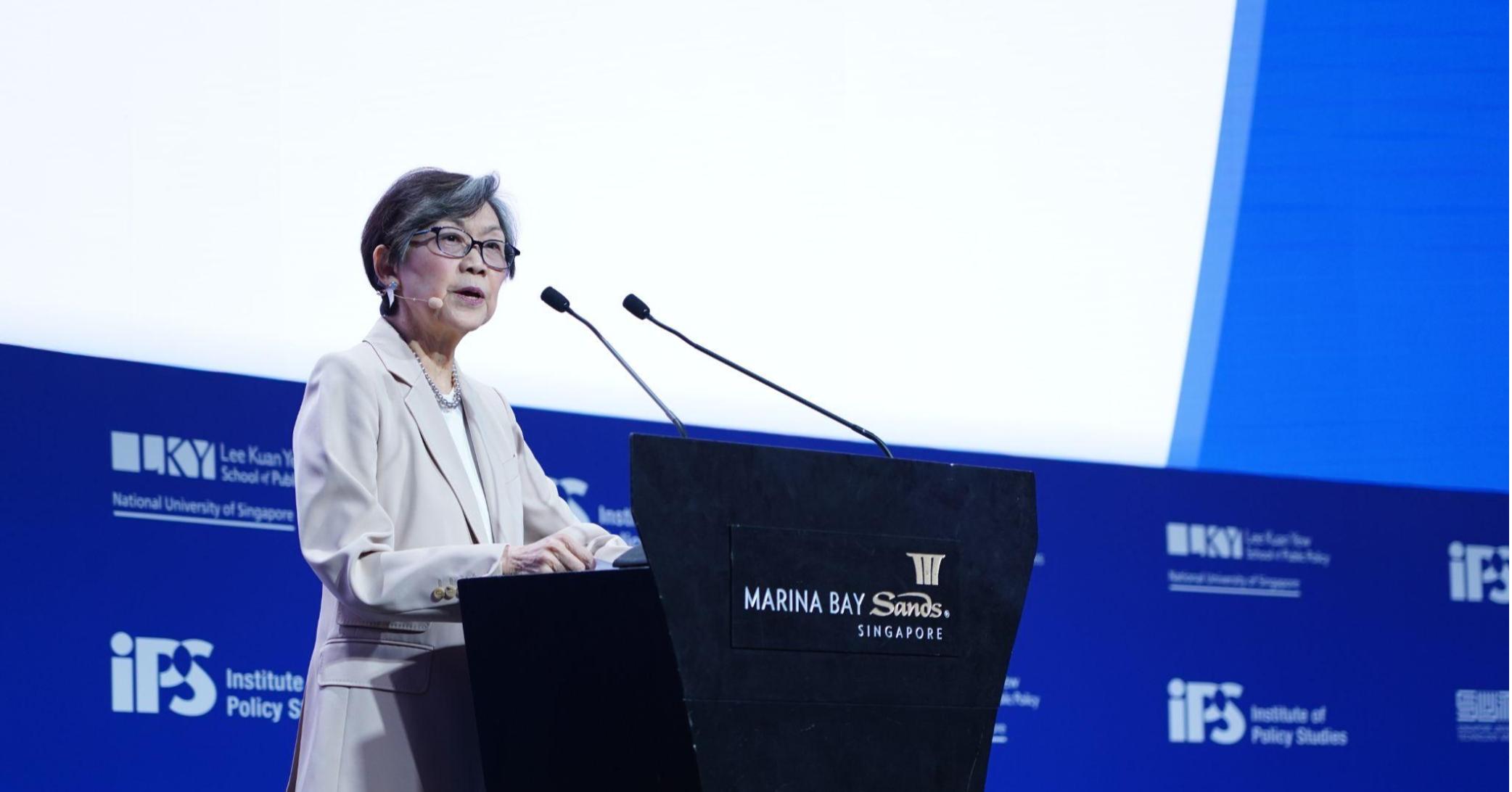
 On Aug. 14, Ambassador-at-large Chan Heng Chee spoke at the "Reinventing Destiny" conference, held in commemoration of Lee Kuan Yew's 100th Birth Year anniversary.
On Aug. 14, Ambassador-at-large Chan Heng Chee spoke at the "Reinventing Destiny" conference, held in commemoration of Lee Kuan Yew's 100th Birth Year anniversary.
As part of her presentation on the panel entitled "A Small State in a Turbulent World", on Singapore's geopolitics, she pushed back on recent allegations by American newspaper the Washington Post (WaPo), about Singapore's newspaper Lianhe Zaobao (ZB).
She also spoke on how Singapore can maintain its relevance, even as a small state, in a period of global contestation.
Second round
Chan compared the current geopolitical contestation as the second round of a "13-round boxing match" between the United States and China, and it could go on for a long time.
"Both sides see it as a zero-sum game, till they don't," she said.
But neither are powerful enough to achieve their primary goals, the U.S. cannot fully contain China, and China cannot push the U.S. out of the Asia Pacific region.
The U.S. and its allies compete with China to court and win as many friends and partners as possible, with Asean enjoying more attention and interest from the U.S. than before.
But with that attention, comes increased pressure.
Under Pressure
Chan gave the example of a recent Washington Post article on Lianhe Zaobao, where the American paper alleged that ZB routinely echoed some of the Chinese government's "most strident falsehoods", as well as not fully disclosing the identity of guest contributors with links to the CCP.
Zaobao has defended itself against the allegations, saying that WaPo's report made unfair statements and respected how their contributors wished to identify themselves.
She also noted WaPo's reports of China's attempts to spread its messaging and influence amongst Singapore's Chinese Clan and Business Associations.
She said:
"Singapore is well aware of these activities and the government is constantly vigilant against agents of influence of all countries.
We have a history of uncovering black-ops targeting our population, seeking to manipulate sentiments."
She also said that she thought it natural that Singapore's English language papers would source information from English language sources, with Chinese language papers favouring Chinese language sources.
She warned that articles such as the WaPo's would be read by U.S. leaders and their staff, and would lead to questions being asked about Singapore, and pressure being put on the country.
She also said that several U.S. strategic thinkers were concerned by Southeast Asia's seeming lack of concern for China's propaganda efforts and activities, and would like to see more done to counter this.
The result would be a stepping up in the battle of narratives in the region, "much more than currently evident."
Choices
As a small state, Chan said, Singapore had to remain active and "let our voice be heard", or risk losing relevance.
Singapore had to be active on the international stage and develop a good narrative, and bringing "a reasoned voice to what sort of world order we want", and behave in a way that serves Singapore's national interest and protected her sovereignty.
Singapore, while not choosing between the two superpowers, still had to make choices along the way, working with both sides and developing a strong relationship with both.
Singapore also had to maintain its relevance by continuing to build up a strong, successful economy and society.
Chan pointed out that a Singapore that was a "basket case" would lose its relevance and voice very quickly.
Asean
Finally, she said that Singapore, as a small state, had to work with smaller groupings such as Asean.
Chan said that while many were quick to write off Asean as ineffectual and disunited, larger organisations were also subject to similar critiques.
And Asean citizens still viewed the organisation are influential and powerful as a champion of global trade, according to a recent Yusof Ishak Institute poll.
To her, Asean was the right organisation for this moment in global history, and Singapore had to be an active player in order to preserve the peace, stability, and prosperity of the region.
Related Stories
Top image via Mothership
If you like what you read, follow us on Facebook, Instagram, Twitter and Telegram to get the latest updates.

